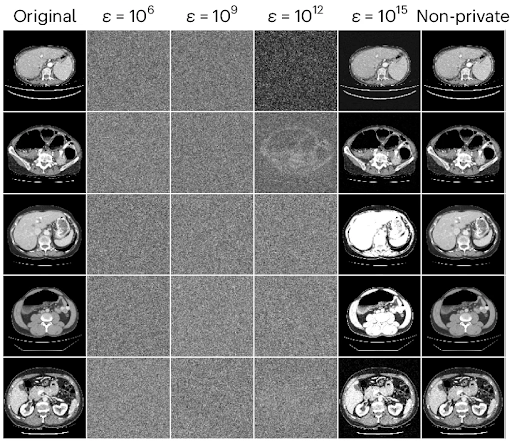The integration of artificial intelligence (AI) in healthcare can transform oncology practices, especially at the end of life. This phase of treatment requires healthcare professionals to combine technology with the human touch that patients and their families need during difficult times. Administrators, owners, and IT managers in the United States are looking into how AI can make operations smoother while keeping patient care at the forefront.
AI’s Role in Oncology and End-of-Life Care
AI technologies have progressed in oncology, particularly in diagnosis, treatment personalization, and patient outcomes. By analyzing large datasets, AI tools can help healthcare workers find treatment paths suited to individual patients when standard options might not be effective.
In end-of-life care, AI can assist oncologists by offering data-driven insights that aid in tough discussions about prognosis and treatment options. This support helps healthcare providers and patients navigate the emotional challenges of end-of-life decisions.
Enhancing Decision-Making
AI can improve decision-making during end-of-life stages by providing oncologists with relevant patient data and clinical findings. This allows for collaborative discussions between healthcare providers and patients, making it possible for patients to consider options that resonate with their values and preferences.
However, it is essential to balance AI recommendations with patient autonomy. There’s a risk that AI-driven advice may overshadow what patients want. Oncologists need to ensure that AI tools support care without taking over the decision-making process, creating an environment where patient choices are respected.
Challenges in Integration: Ethics and Trust
Even with the benefits of AI in oncology, challenges exist that must be tackled to ensure care remains ethical and compassionate. AI’s introduction can raise concerns about the personalization of healthcare interactions. Trust is essential in the doctor-patient relationship, and using AI must not undermine that trust.
Healthcare professionals should be mindful of how they communicate AI-generated data to patients. Clear communication about what AI can and cannot do is important. Educating patients on how AI supports treatment choices fosters trust and a collaborative environment.
Oncologists should take the time to clarify AI data during consultations, making sure that patients grasp its relevance. Careful and clear communication can unite technological advancement with the emotional support patients need.
AI and Workflow Automation in Oncology Practices
AI can improve oncology practices through workflow automation. By taking over routine tasks like appointment scheduling and managing patient follow-ups, AI can reduce staff workloads and streamline operations.
Improving Front-Office Operations
Simbo AI offers solutions focused on automating front-office phone tasks in oncology practices. Integrating AI into these operations helps ensure that patients get prompt responses to their inquiries, which is crucial during end-of-life care when families may need urgent answers.
AI communication tools can shorten response times, provide consistent information on treatment protocols, and offer the necessary support while allowing healthcare providers to concentrate on patient care.
Automating Appointment Scheduling
Automated scheduling can cut down on delays and lighten the load for front-office teams. AI systems can handle appointment bookings, confirmations, and reminders, ensuring that patients receive timely notifications about their appointments. This reduces the risk of missed appointments, which is vital in oncology care where timely interventions can affect outcomes.
Furthermore, AI can analyze cancellation patterns and patient feedback to improve scheduling practices, aligning staff availability with patient needs.
Managing Follow-Ups and Patient Outreach
Post-treatment follow-up is crucial in oncology, especially in end-of-life care. AI tools can help with tracking patient progress and managing outreach. Automated systems facilitate follow-up communications, helping healthcare providers check on patient conditions and feelings. Regular check-ins can identify problems early and encourage ongoing patient engagement.
Additionally, automated reminders for medications or appointments can help patients actively participate in their health management, which is especially important for maintaining quality of life in end-of-life stages.
The Importance of Empathy in Care
Despite technological advances, the human aspect of oncology care is essential. Empathy should guide interactions with patients making end-of-life decisions. AI can assist with data collection and recommendations, but the emotional and relational facets of care are irreplaceable.
Patients with terminal diagnoses often experience significant emotional distress. Healthcare professionals’ ability to provide empathy and understanding is crucial. Oncologists should create supportive environments where patients feel heard and valued. Technology should aid their approach, not replace the compassionate care that is central to oncology practice.
Training for Healthcare Professionals
To effectively integrate AI while keeping empathy in patient interactions, healthcare organizations should invest in staff training. Clinicians and front-office personnel need education on using AI tools to enhance patient engagement.
This training can give healthcare professionals the skills to handle AI-generated data in consultations, allowing them to convey information clearly and compassionately. It helps ensure that technology aligns with the emotional needs of patients and their families.
Cultural Considerations in Patient Care
Cultural sensitivities play a vital role in patient care, especially during end-of-life stages. Understanding and respecting diverse cultural backgrounds can significantly impact treatment choices. AI can collect data and identify cultural preferences, but oncologists must remain aware of individual patient experiences.
Integrating cultural competence into AI tools can improve communication with patients. For example, AI can help identify the need for translator services or culturally relevant counseling resources when family values are involved.
Supporting Families
End-of-life care also includes supporting patients’ families, who often carry the emotional load of illness. AI tools can aid in facilitating family meetings and maintaining communication between family members and healthcare teams. Automated texts, calls, or secure messaging can keep families updated on their loved ones’ status.
Moreover, AI can gather feedback from families regarding their experiences, which can be useful for improving patient care practices. By systematically processing feedback, healthcare organizations can strive for a more supportive approach to end-of-life care.
Final Review
As U.S. healthcare practices adopt AI, especially within oncology, it is critical to maintain a balance between technology and empathy. AI has the potential to streamline operations, enhance outcomes, and improve decision-making processes but must be applied with attention to emotional and ethical factors in end-of-life care.
Using solutions like those from Simbo AI, oncology practices can create more efficient workflows while focusing on patient engagement and support. Training healthcare staff in effective communication and cultivating a compassionate approach will ensure technology enhances rather than detracts from patient experiences. Engaging with patients and their families through empathy will remain a defining feature of quality care, even in a technology-driven era.
The post AI and End-of-Life Care in Oncology Practices: Balancing Automation & Empathy first appeared on Simbo AI – Blogs.











